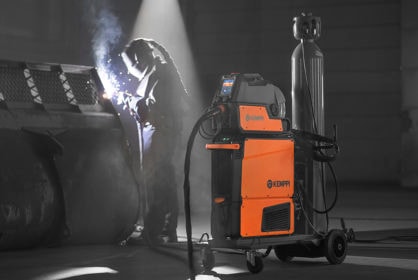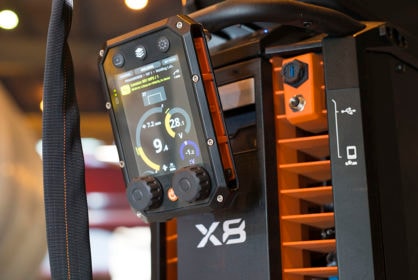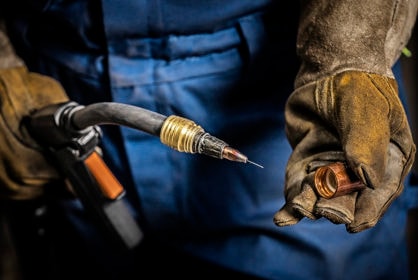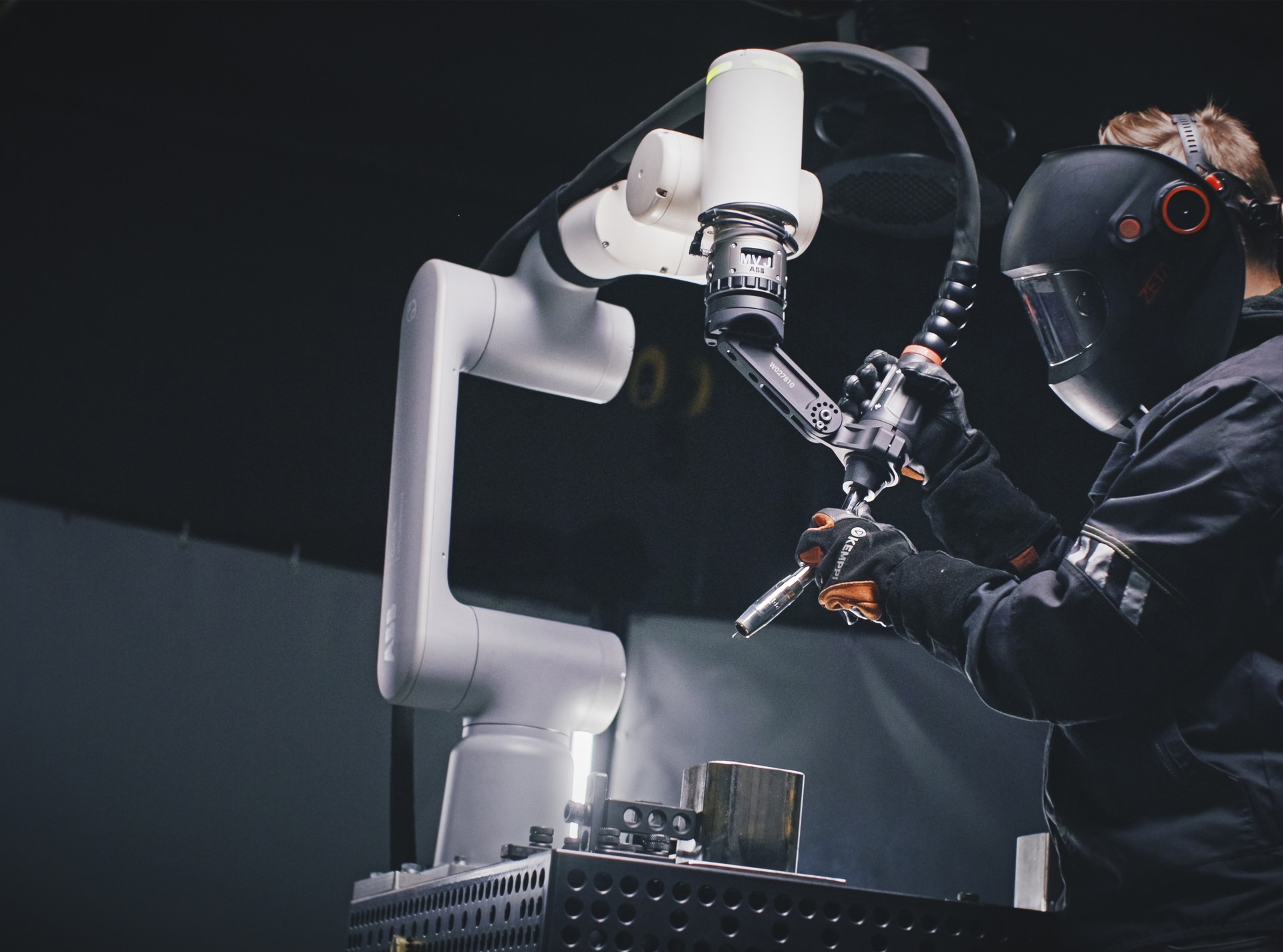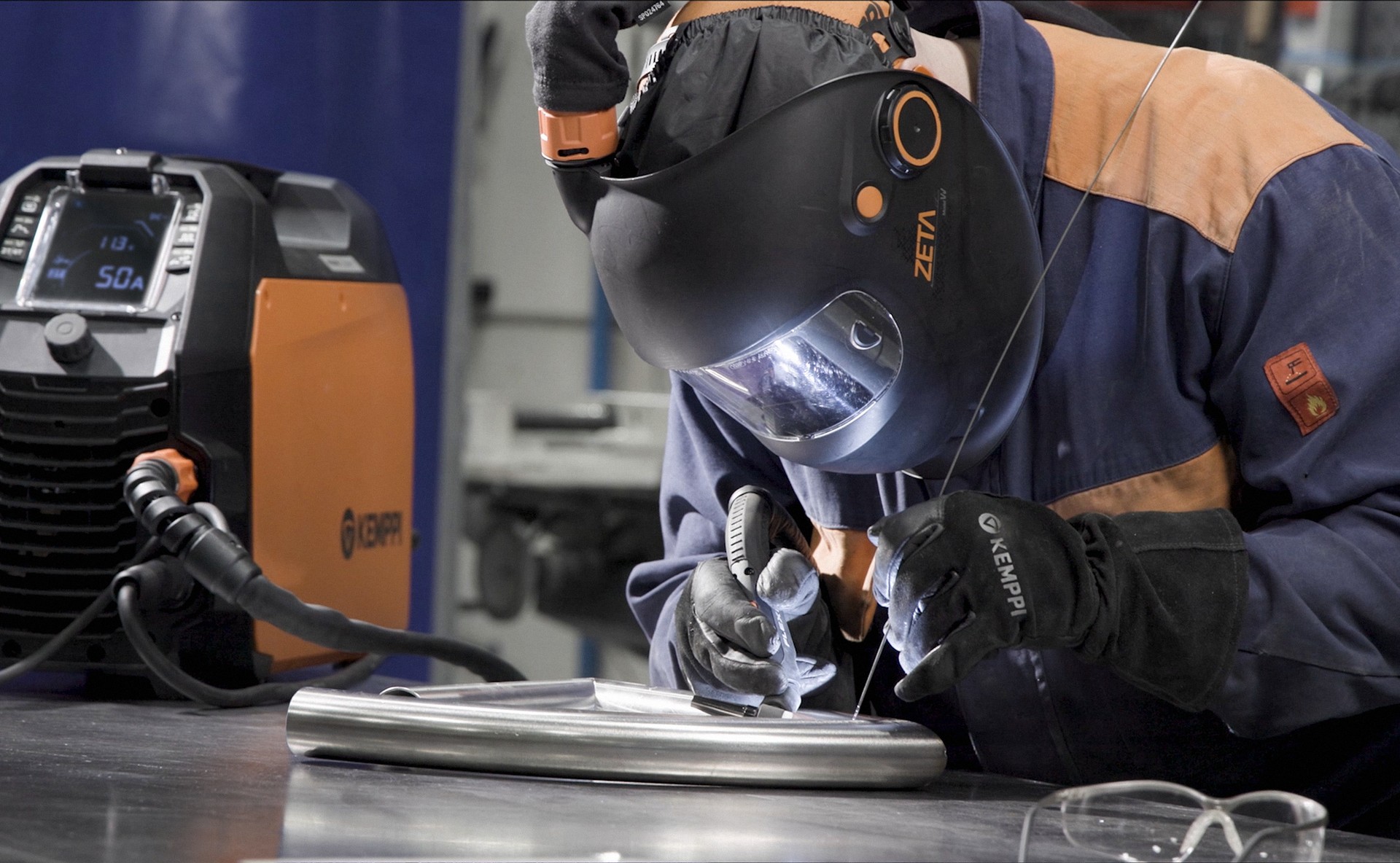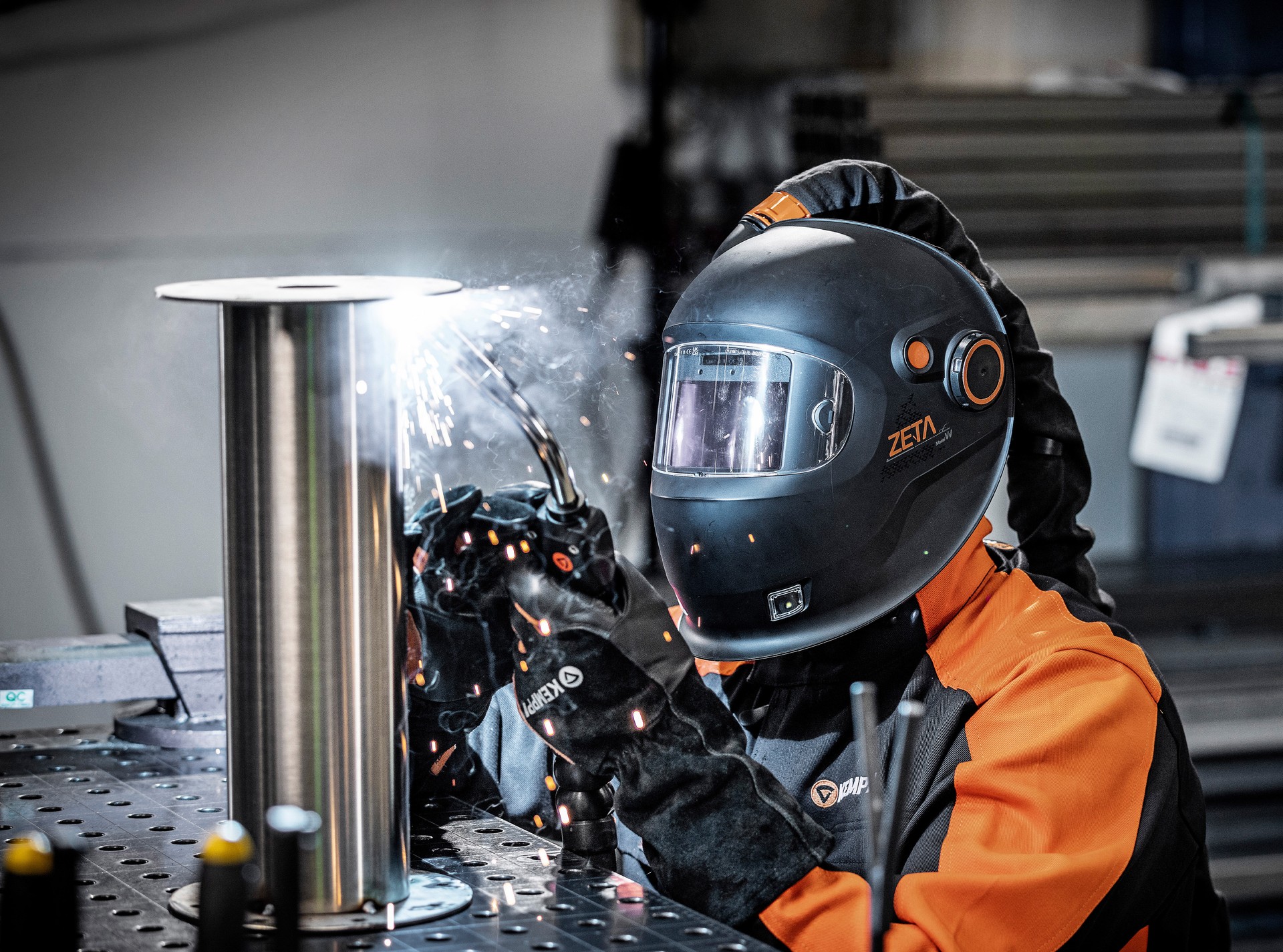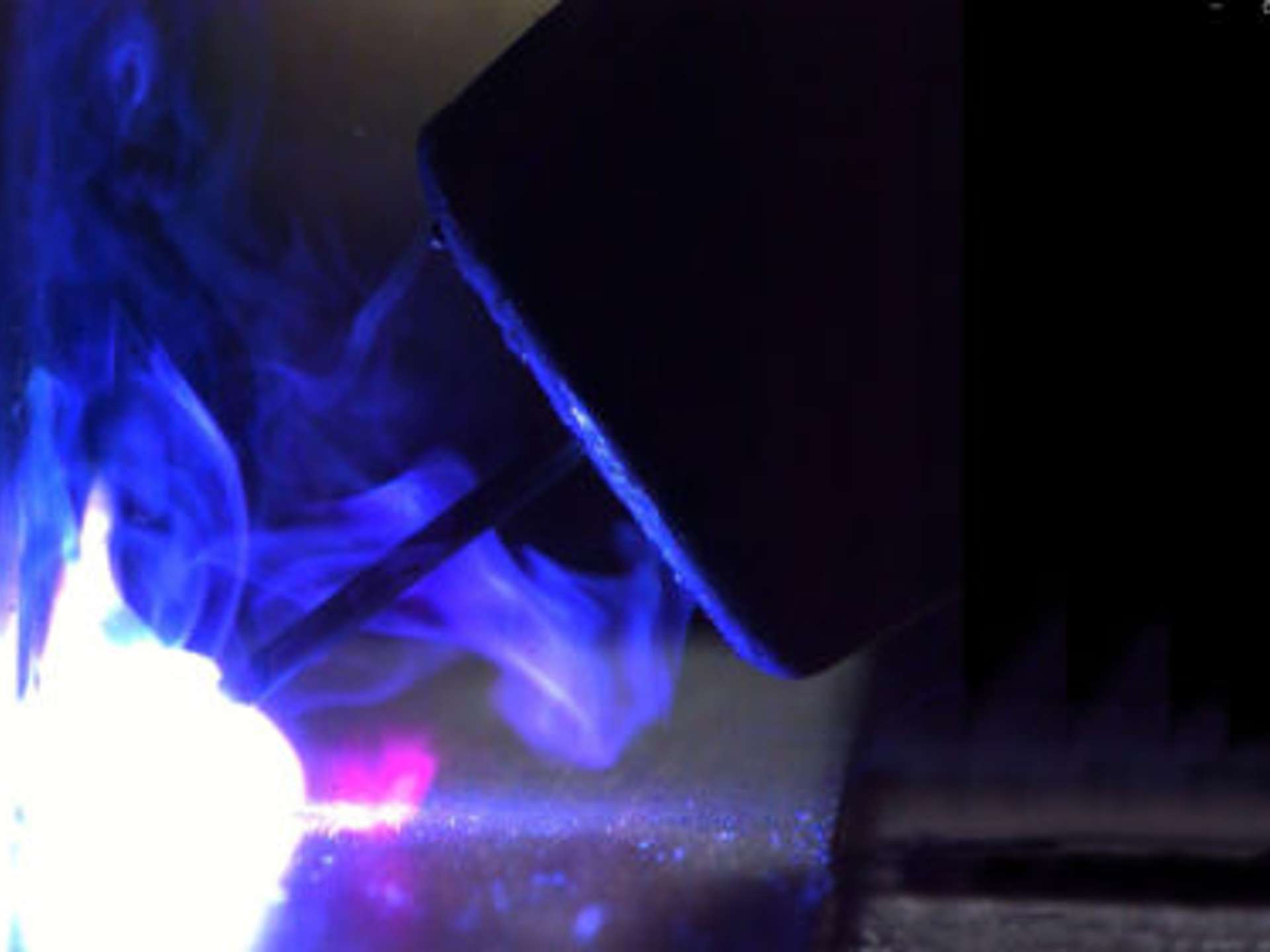
Manuel svejsning
Stable arc ignition improves welding quality and reduces costs
13. december 2020
In MIG/MAG welding, arc ignition plays a key role in welding quality. Any instability will result in the post-weld cleaning of spatters, which eats up resources and hinders productivity in industrial environments. Available in modern welding equipment, new ignition-enhancing technologies offer additional control of the arc and support the craftsmanship of welders.
John Frost
Welding quality rests significantly in the hands of every welder. Skilled and conscientious, professional welding craftsmen create safe and reliable weld seams, following welding procedure specifications (WPS) that control parameter variability and process selection. But craftsmen need great tools to achieve quality outcomes, and the welding process is not unique in that respect.
Buy well, pay once
Like many trades, equipment selection is important and can present significant variables in overall performance. There are many cheap equipment alternatives that promise a lot, but as with all equipment investments, it is a case of ‘buyer beware’.
Kemppi is a Finnish welding equipment manufacturer, known for quality, reliability, and 70 years of technology innovation. Kemppi customers have never paid the lowest price but will tell you they ‘bought well and paid once’ for years of reliable welding performance. However, today welding equipment value must run deeper than just reliability. It must deliver across a spectrum of value points, capable of enhancing welding craft performance, for the benefit of overall welding cost control and quality.
Reduce post-weld costs with excellent arc ignition
Take arc ignition for example. Establishing a MIG/MAG welding arc is the first practical point from which costs can climb unnecessarily. Welders ignite the arc hundreds of times a day, and in the MIG/MAG welding process, spatters are created during every ignition cycle. They are an unwelcome outcome of the process that must be cleaned up after welding, adding significant extra job costs through labor time and abrasive materials used. Therefore, better control in this key area can significantly reduce costs and increase overall quality.
Kemppi’s process technology, Touch Sense Ignition (TSI), specifically deals with this arc ignition issue. The TSI technology better controls the detailed process of MIG/MAG ignition cycles, ultimately reducing ignition spatters and post-weld cleaning process costs.
Cleaner and more equal ignition cycles with Touch Sense Ignition
Traditional MIG/MAG ignition attempts to control a range of opposing elements during the ignition cycle. For example, when you squeeze the welding gun trigger, the wire feed mechanism starts to feed the filler wire towards the workpiece at your pre-set wire feed speed value as a constant.
Momentarily, the tip of the filler wire will contact the workpiece, creating a short circuit, but the filler wire continues to feed at the given speed. This mechanical energy has the effect of pushing the gun away from the plate, and the welder can feel this impact, which could influence tacking accuracy, for instance.
Importantly, as soon as the filler wire contacts the workpiece, the welding circuit is made and the filler wire temperature starts to accelerate rapidly. The filler material starts to deform, eventually collapsing to the point where the secondary short circuit takes place. This happens several times a second during the initial ignition cycle. In many welding machines, this is a relatively uncontrolled and variable process, which causes molten spatters that adhere to the work surface.
Kemppi’s TSI technology resolves these challenging ignition variables through a series of system parameter controls. Firstly, the filler wire feeds towards the workpiece in a normal manner, but importantly stops on contact, sensing the welding short circuit.
At this point, the filler wire retracts slightly, and a pilot arc is established, heating the filler wire tip. This is followed by the pre-set system arc power, establishing the weld pool, and allowing the weld seam to continue. Importantly, spatter levels are significantly reduced, and ignition cycles are cleaner, equal, accurate, and reliable.
Touch Sense Ignition is currently available as a standard feature in the new X5 FastMig industrial MIG/MAG welding system. Order a demonstration today, and test and compare it for yourself. For further information on TSI or X5 FastMig equipment test and trial, please contact your country-based Kemppi field sales team or local Kemppi partners.

John Frost
John Frost
Product Manager, Kemppi Oy.

